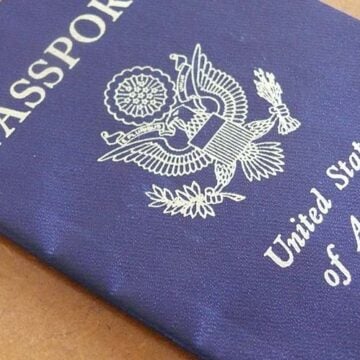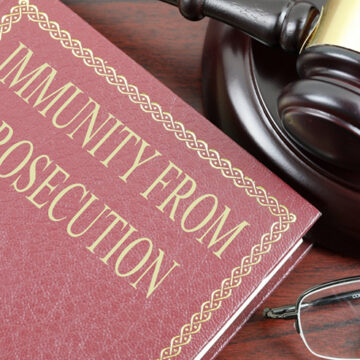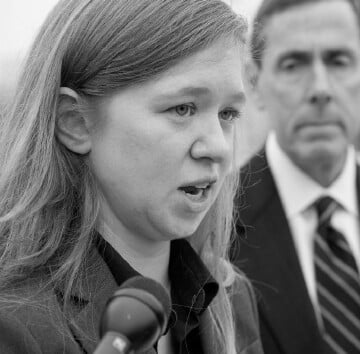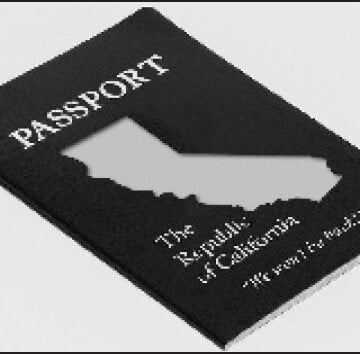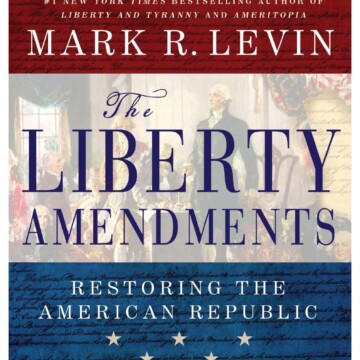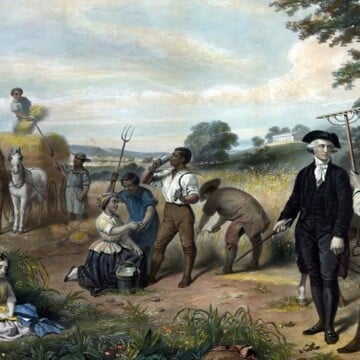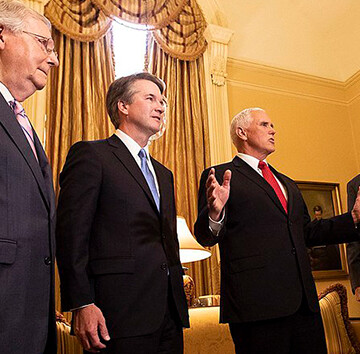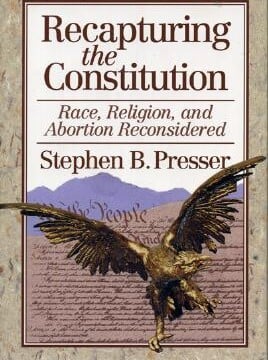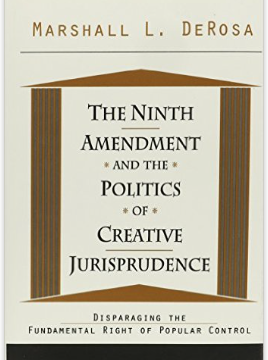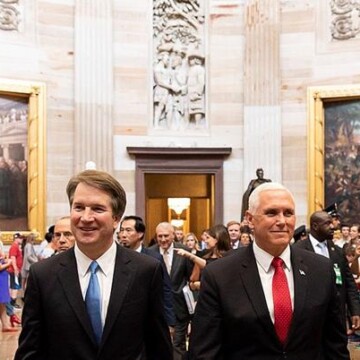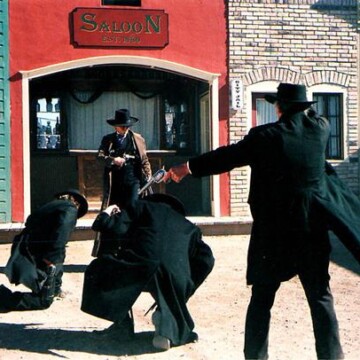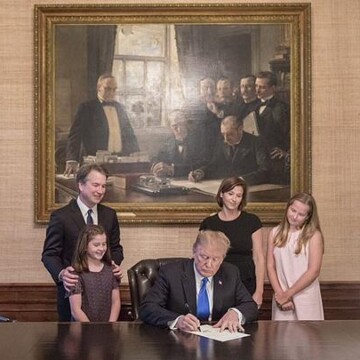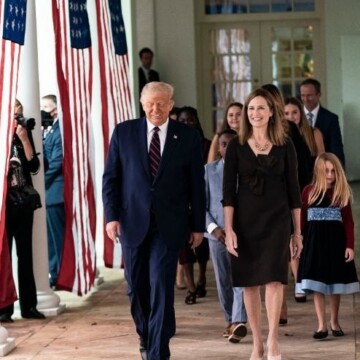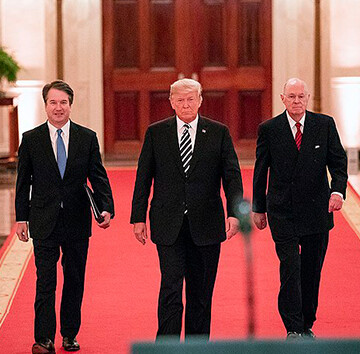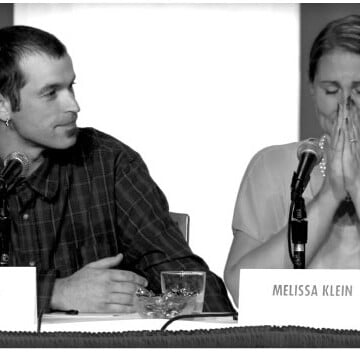Trump’s promise to end birthright citizenship will be a battle but it’s a battle America can’t afford to lose.
2065 search results for: Supreme%2525252525252525252525252525252525252525252525252525252BCourt
Allowing Affirmative Action
The Supreme Court’s ruling allowing affirmative action at the University of Michigan but striking down the school’s system of racial quotas led Linda Chavez, in a syndicated column entitled “Supreme Mischief and Racism” (June 26), to warn against desecrating a sacred vision. Forty years ago this August, “the Rev. Martin Luther King gave a speech...
All Three Branches of Government Need Legal Immunity
Presidential immunity, judicial immunity, and legislative immunity are essential to a system that allocates power through a democratic process.
Politics Make Strange Bedfellows
Politics, they say, makes strange bedfellows, but that’s nothing compared to constitutional amendment. A few weeks ago, I found myself testifying before the Constitution Subcommittee of the House Judiciary Committee, and on the panel with me, testifying in favor of the Flag Protection Amendment, were a former Miss America, a holocaust survivor, an African-American bishop,...
Robert Bork, RIP
Today brings the sad news that Robert Bork has passed away. The sadder news for America, though, came in 1987, when the Senate unjustly rejected his nomination to the Supreme Court. There is no doubt that, had Bork been confirmed, Roe v Wade would have been overturned in 1992 when the Supreme Court decided Planned Parenthood v...
The Most Dangerous Man in the Mid-South
This is the first of a series of first-person reports from American citizens who have run afoul of the bureaucracy. While we have made reasonable efforts to verify the accounts, the stories are personal statements of the authors. Almost 30 years ago, just a few weeks before I got married, I found a strange book...
Beating Affirmative Action
Is the composition of the Supreme Court the be-all and end-all of important societal conflicts? Are there effective ways that conservatives can address these conflicts—manifest in political battles over such things as affirmative action—apart from the Court? The Supreme Court’s decision in Fisher v. University of Texas, handed down on June 23, means affirmative action...
Liberal Tolerance on Display After Reversal of Roe v. Wade
After the Roe reversal protests erupted all across the country, with the largest in New York, Chicago, and Los Angeles—cities in states with virtually zero probability that their lawmakers will pass laws restricting abortion.
Going It Alone
As the high lunacy of the 1990 budget negotiations showed, America’s federal arrangement has been replaced by a confederation of special interests that have less in common than the former colonies—or even, perhaps, than the states that comprise the United Nations. America resembles more a League of Interests than it does a nation. The solution...
The Most Desirable Option: Reeducating for Secession
In this age when the foundational idea of American federalism has become all but defunct and the concept of states’ rights still has the whiff of Jim Crow about it, it is difficult to see how either individual states or regions can have any significant influence on the federal government—even if they had legislatures interested,...
Turmoil in Egypt
Last Thursday’s decision by the Supreme Constitutional Court in Cairo that Egypt’s parliament was elected unconstitutionally and should be disbanded is a direct challenge to the Islamists who dominate the legislature. The scene is set for a new political crisis in the Arab world’s most populous nation. It is obvious that the Supreme Council...
As Cold as Charity
Did anybody notice when Catholic Christianity ceased to be a religion in the United States? Not when it stopped being a popular or even a permissible religion, but when it became simply a nonreligion? I ask this because a recent court decision in California threatens to launch a legal revolution, in a way that would...
The Constitution, R.I.P.
On July 22 of this year, the Washington Times published, as the weekly installment of its “Civil War” section, a long article by a gentleman named Mackubin Thomas Owens, described as “professor of strategy and force planning” at the Naval War College in Newport, Rhode Island, under the headline, “Secession’s apologists gut Constitution, history.” The...
Trading Liberty for Security
Attacks on constitutional liberties, including the erosion of due-process protections for the rights to life, liberty, and property, tend to soar in wartime. The most egregious assaults have occurred during the Civil War, the two world wars, and, most recently, in the so-called War on Terror. Courageous individuals spoke out against the abuses during and...
The Teaching Evolution
The teaching evolution is back in the news, in a case that the media—with their usual sensationalism—are comparing to the Scopes trial of 75 years ago. On August 10, Steven Green, legal director of the Washington-based Americans United for Separation of Church and State, sent a letter to the Kansas State Board of Education, threatening...
Abortion: Fetus Liberation Fronts
It is hard to see that much good has ever come from any of the various declarations of the rights of man. Such a declaration did not save the French from either Robespierre or Napoleon, and the constitution of the defunct USSR practically glows with liberal enthusiasm for human rights. For some strange reason, though,...
Re: Roberts Is No Warren
I certainly understand Mr. Oliver’s point, but I’m afraid he has misunderstood mine. Do I think that John Roberts has a burning desire to impose a “radical social agenda” on the country? No. But his unprecedented expansion of Congress’s power “to lay and collect Taxes” has given Congress a new tool to do just that....
Brief Thoughts on a Justice Bork
I met Judge Robert Bork once, in the summer of 1989, when I was interning at Accuracy in Media. I was working on a feature story for the Washington Inquirer, AIM’s weekly newspaper, about the Smithsonian Institution’s use of tax dollars to fund the performance of Santeria and Palo Mayombe rituals on the Mall in...
On Federalism and Flag-Burning
The Supreme Court, in the case of Johnson v. Texas, arrogated to the federal government the power to decide that all states must allow the public burning of the federal government’s flag. This decision clearly contradicted both the near unanimous understanding of previous Supreme Court justices, including such constitutional nihilists as Chief Justice Earl Warren...
Impractical Solutions
Mark Levin, in his best-selling book The Liberty Amendments, is absolutely right about two things: First, the Courts, president, and Congress are not playing the roles assigned to them by the Constitution. The Court is deciding the country’s social and cultural issues; the president freely amends laws and drops Tomahawk missiles on people without going...
Slavery and the American Founding
The New York Times’ “1619 Project” is a series of articles published in 2019 to mark the 400th anniversary of the first enslaved Africans to arrive in America. In an introduction to the series, New York Times Magazine Editor-in-Chief Jake Silverstein claims that slavery “is the country’s very origin.” He writes: Out of slavery—and...
Robert Bork, R.I.P.
I met Judge Robert Bork once, in the summer of 1989, when I was interning at Accuracy in Media. I was working on a feature story for the Washington Inquirer, AIM’s weekly newspaper, about the Smithsonian Institution’s use of tax dollars to fund the performance of Santeria and Palo Mayombe rituals on the Mall in...
Line Item Veto Act
The Line Item Veto Act has been struck down by the Supreme Court. As I predicted in the February issue of Chronicles (“Reining in the Feds“), the Court (in Clinton v. City of New York) declared that the act violated the Constitution’s Presentment Clause, which commands that a bill passing both the House and the...
“Empathy” And The Court
The President wants an empathetic jurist to replace David Souter on the U.S. Supreme Court. He will likely get such a one. What the country will get in that event is one more senator or cabinet member—as straw boss, head knocker, high and mighty arbiter of high and mighty matters. A sort of modern Roman...
Panic on the Left
President Bush’s nomination of Judge John Roberts to the U.S. Supreme Court has caused something just a little short of panic on the left. The day after the announcement, the New York Times told its readers that Roberts and his wife, Jane Sullivan Roberts, are “devout Catholics.” The following day, a front-page headline proclaimed that...
57 million babies and counting, RIP
Something died in America 42 years ago today. That’s when the U.S. Supreme Court handed down its 1973 edict, Roe v. Wade, forcing all 50 states to almost completely legalize abortion on demand – even those states that already had legalized it. About 57 million babies have been killed since. But something more died: Maybe...
Thanks, Christine
The ugliness displayed by the media and Democrats during the fight over Brett Kavanaugh’s nomination to the U.S. Supreme Court is yet another indicator of how far we have come from Hamilton’s conception of the federal judiciary as “the least dangerous branch.” Kavanaugh was nominated to replace Anthony Kennedy, who used his perch on the...
Neoconservative Choicers
Polly Williams, a black Democrat in Wisconsin, has been hailed by the Wall Street Journal, Reason, and other neoconservative organs for her school choice legislation. And the Wisconsin Supreme Court has approved it: underclass public school students can now get more welfare, in this case free tuition, at “nonsectarian” private schools. Neoconservative choicers hail the...
Constitutional Disorder
The Supreme Court, as Stephen Presser laments, has wandered far off course; increasingly its Justices have taken to reading their own preferences and prejudices into the Constitution, thereby abandoning their solemn obligation to act as its guardians by interpreting its provisions in accordance with the basic values and intentions of the Framers. What is more,...
Scandalous Education: UT’s War on Standards
In 2003, the Supreme Court expected “that 25 years from now, the use of racial preferences will no longer be necessary” in university admissions. That was the conventional wisdom of the time. Affirmative action was supposed to be a temporary deviation from the principle of nondiscrimination, a remedy for injustices past, a bit of accelerated...
Rediscovering Philadelphia
“There is no liberty if the power of judging be not separated from the legislative and executive powers.” —Montesquieu The theme that unites the short, somewhat disparate eight chapters of this book is the use by the Supreme Court of unenumerated rights—that is, rights beyond those specifically enumerated in the Bill of Rights—to invalidate state...
On Sovereigntists
Sean Scallon’s analysis of Quebec sovereignty (Cultural Revolutions, June) misses the point. In Reference on certain Questions concerning the Secession of Quebec from Canada (1998), the Supreme Court of Canada held that the people of Quebec have a constitutional right to press for independence by all means allowed in parliamentary democracy; that the people of...
Flies in the Ointment
Supporters of school vouchers are jumping for joy over a Wisconsin Supreme Court verdict, handed down this summer, that permits tax dollars to be used at religious schools. They hope the decision will be the basis of a vast expansion of vouchers (four other states are debating this same question), eventually leading to a federal...
The Late Hit on Judge Kavanaugh
Upon the memory and truthfulness of Christine Blasey Ford hangs the Supreme Court nomination of Judge Brett Kavanaugh, his reputation, and possibly his career on the nation’s second highest court. And much more. If Kavanaugh is voted down or forced to withdraw, the Republican Party and conservative movement could lose their last best hope for...
In Focus – Say A Little Prayer
George Goldberg; Reconstructing America; Wm. B. Eedernabs; Grand Rapids, MI. Many years ago Leo Strauss remarked that the Supreme Court is more likely to defer to the contentions of social science than to the Ten Commandments as the words of the living God. Strauss was, of course, basing his observation on the use of social...
A “Containment Policy” for the New Cold War
Americans regularly accept expropriations—legal, moral, and economic—from the central government that would have driven our 18th- and 19th-century ancestors to arms. The Constitution reserves to the states and local communities all powers necessary to provide legal protection for valuable ways of life. These rights have been usurped by the central government, especially by the Supreme...
Rediscovering Philadelphia
“There is no liberty if the power of judging be not separated from the legislative and executive powers.” —Montesquieu The theme that unites the short, somewhat disparate eight chapters of this book is the use by the Supreme Court of unenumerated rights—that is, rights beyond those specifically enumerated in the Bill of Rights—to invalidate state...
The Huge Stakes of Thursday’s Confrontations
Thursday is shaping up to be the Trump presidency’s “Gunfight at O.K. Corral.” That day, the fates of Supreme Court nominee Brett Kavanaugh and Deputy Attorney General Rod Rosenstein, and much else, may be decided. The New York Times report that Rosenstein, sarcastically or seriously in May 2017, talked of wearing a wire into the...
Dress Rehearsal for Impeachment
Judge Brett Kavanaugh’s nomination to the Supreme Court was approved on an 11-10 party-line vote Friday in the Senate Judiciary Committee. Yet his confirmation is not assured. Sen. Jeff Flake, Republican of Arizona, has demanded and gotten as the price of his vote on the floor, a weeklong delay. And the GOP Senate has agreed...
Federalizing Funerals
The Westboro Baptist Church and its bizarre octogenarian pastor, Fred Phelps, won a major victory at the Supreme Court in March. In an 8-1 decision, the Court reversed a multimillion-dollar award to the family of Marine L.Cpl. Matthew Snyder, who was killed while serving in Iraq. In 2006, Westboro members showed up outside the fallen...
Will Justice Amy Star in ‘The Five’?
By nominating Federal Judge Amy Coney Barrett to the Supreme Court, Donald Trump kept his word, and more than that. Should she be confirmed, he will have made history. Even his enemies would have to concede that Trump triumphed where his Republican predecessors—even Ronald Reagan, who filled three court vacancies—fell short. Trump’s achievement—victory in the...
A Landmark Decision
The Supreme Court, in its landmark 6-3 decision in Atkins v. Virginia, has taken the penultimate step toward total elimination of the death penalty in the United States. The facts of the case are clear: Daryl Atkins and an accomplice plotted to rob a customer in a convenience store; abducting their victim, they took him...
On a Supreme Court Appointment
Chronicles carries informed and very interesting articles. You have literate and intelligent authors, and I look forward anxiously to the arrival of each issue. I want to compliment you particularly on the article on the judiciary by William F. Harvey (“An Appointment to the Supreme Court,” Vital Signs, June). It is a tragedy that Judge...
Sharpening the Swords
On June 25, one day before the U.S. Supreme Court declared that a man can marry a man and a woman can marry a woman, the Washington Post published an op-ed by Louise Melling, the deputy legal director of the American Civil Liberties Union. Miss Melling’s announcement that the ACLU would no longer support the...
Kavanaugh in Retrospect
Hours after the U.S. Senate voted to confirm Judge Kavanaugh as the 114th Supreme Court Justice, a commentator on FOX News remarked that no winners had emerged from the legislative ordeal. He was wrong, of course. Kavanaugh himself was the primary winner, having survived the fury of Hell itself to prevail over the persons and...
Michigan’s Race Factor
The U.S. Supreme Court’s June 23 decision striking down the University of Michigan’s race-based undergraduate admissions policy ended a decade-long struggle started by university administrators and finished by conservative legislators and their grassroots supporters. On April 23, 1997, Michigan State Rep. David Jaye, a paleoconservative Republican from suburban Macomb County, sponsored an amendment to the...
We’ve Only Just Begun
The Left is not generous in victory. The ink on the Supreme Court decision in Obergefell v. Hodges was barely dry before a vicious assault on organized religion in this country was launched, a multipronged offensive with the clear intention of marginalizing Christians and banishing them from the public square. The first shot was fired...
Forever 1965
In Shelby County v. Holder, the Supreme Court struck down the coverage formula of the Voting Rights Act of 1965 (VRA). Under the formula, states or their political subdivisions are “covered jurisdictions” if they maintained in the 1960’s and early 70’s tests or devices (e.g., a literacy test or moral character requirement) as a prerequisite...
Freedom or Tyranny?—June 2006
PERSPECTIVE Imposing Utopiaby Thomas FlemingConcealing despotism. VIEWS Cincinnatus, Call the Office!by Clyde WilsonPublic service versus the American System. Judging for the Peopleby Stephen B. PresserDemocracy, the Supreme Court, and the Constitution. Democracy: The Enlightened Wayby Claude PolinThe your-fault society. REVIEWS A Government We Deserveby H.A. Scott Trask Sean Wilentz: The Rise of Democracy: Jefferson to...
A Supreme Disqualification
In June, the U.S. Supreme Court once again trampled on the rights of the states. The media took little notice. Since it became a state in 1912, Arizona has had a citizenship requirement for voters. In 2004, the people of the state, in an effort to combat voter fraud, enacted Proposition 200. This initiative requires...
